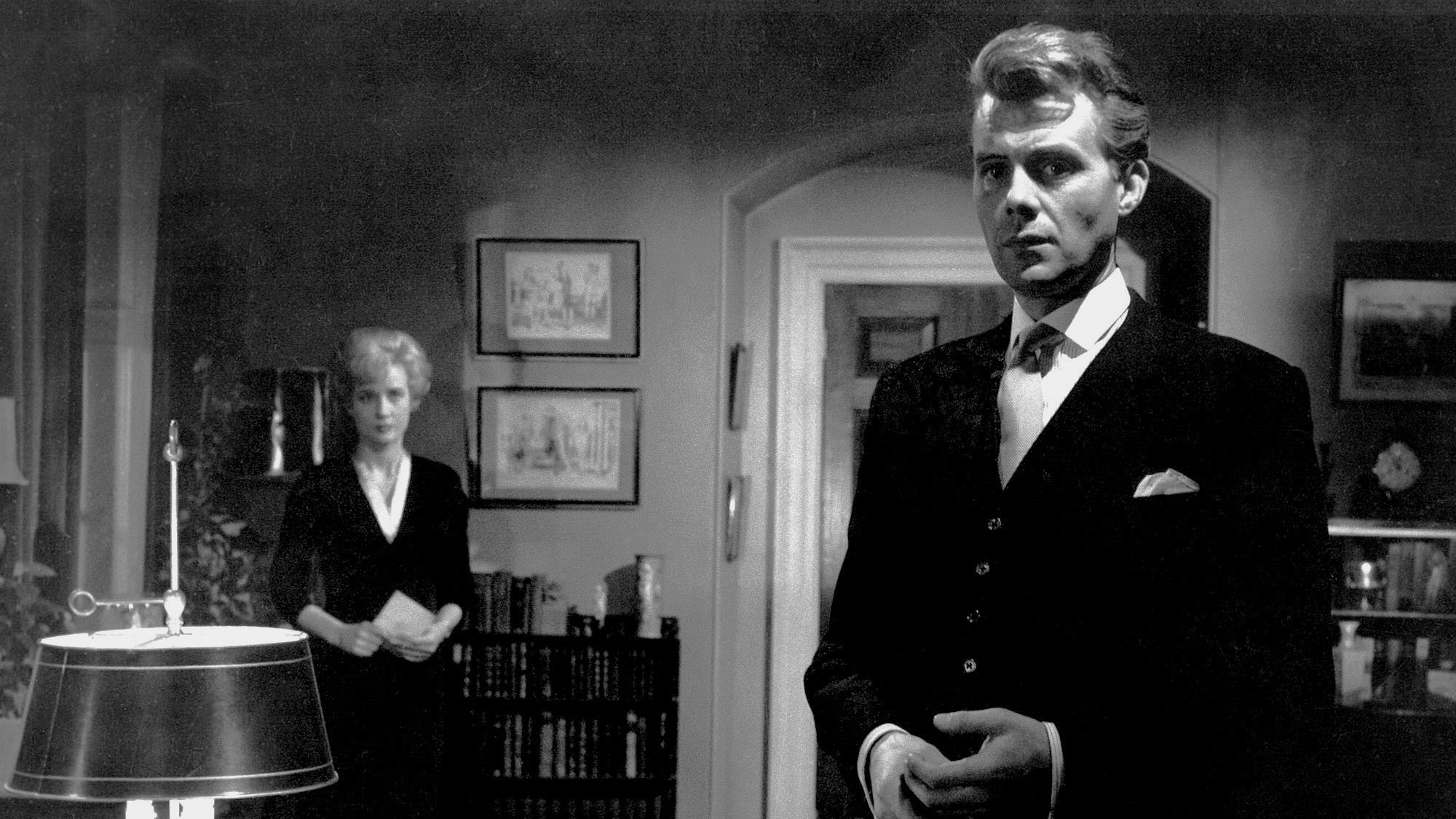
Many filmmakers, particularly those aligned with left-wing, liberal, or progressive ideologies, often assert that their work transcends mere entertainment and can serve as a catalyst for social change. However, throughout cinematic history, there are few examples where films have genuinely fulfilled this lofty ambition. One notable exception is Victim, a 1961 crime drama directed by Basil Dearden. This film is significant for helping pave the way for the decriminalisation of homosexuality in the United Kingdom.
The protagonist of Victim, Melville “Mel” Farr, portrayed by Dirk Bogarde, is a highly successful and respected barrister in London on the brink of receiving the prestigious title of Queen’s Counsel. His promising career is abruptly threatened when he receives a desperate call from Jack “Boy” Barrett (played by Peter McEnery), a young man entangled in legal troubles due to his homosexuality. Barrett is on the run from the police after embezzling money from his employer, an act driven by the coercive pressures of blackmail stemming from his sexual orientation. When Barrett tragically takes his own life in police custody, Farr is consumed by guilt and resolves to investigate the blackmailers himself. This quest leads him deep into London’s homosexual underworld, placing him at risk of exposure and jeopardising not only his career and social standing but also his marriage to Laura (played by Sylvia Syms).
Upon its release, Victim was initially stamped with an “X” rating by the British Board of Film Censors. However, the British censorship system at that time was notably more lenient than Hollywood’s stringent MPAA Production Code, allowing British filmmakers to confront previously taboo subjects with greater openness than their American colleagues. Basil Dearden, who had rackled the issue of interracial romance in Sapphire two years earlier, boldly depicted homosexuality in a way quite explicit for its time, not only daring to openly use the word but actually challenging traditional sexual mores and English laws at the time. Instead of being unnatural abominations to be cast out of society, homosexuals were, as the title suggests, victims of their affliction and deserved pity and understanding instead of being branded as criminals.
Dearden further critiques the criminalisation of homosexuality by illustrating how such laws do not eliminate the issues but rather exacerbate them through blackmail and extortion. This perspective resonated with contemporary audiences; despite initial controversies surrounding its subject matter, viewers flocked to theatres. The film’s impact was palpable, contributing to a shift in public opinion that ultimately influenced government policy, culminating in the decriminalisation of homosexuality six years later.
While Dearden's views may now be considered mainstream, articulating them on screen over six decades ago required considerable courage. Dirk Bogarde exemplified this bravery; previously known primarily as a romantic lead or matinee idol, he chose to take on the challenging role of Farr. This character not only reflects a more mature age but also grapples with unfulfilled homosexual desires that strain his relationship with his wife. Many prominent British actors declined the role due to its sensitive content; however, Bogarde embraced it despite warnings from his agent that he could kiss his promising Hollywood career goodbye. The agent's predictions proved accurate; however, Bogarde's performance was powerful and memorable, paving the way for subsequent roles in European art films in which he played gay or “out there” characters.
Bogarde's performance was well-matched by the rest of the cast, which featured many highly respected British actors in bit parts delivering series of well-written characters showing how homosexuals in early 1960s England, belonging to various social classes and backgrounds, dealt with their "condition" and the threat of persecution. The film also showed how heterosexuals reacted to this phenomenon, ranging from understanding, pragmatism to religious zealotry and homophobic bias. Among the cast, Dennis Price stood out as a popular stage actor who feared for his career (in some ways mimicking Price's alleged real-life status due to bisexuality), as well as Derren Nesbitt playing young blackmailer.
Dearden's direction wasn't flashy or particularly impressive, but it was more than adequate for this type of film. Most of the film takes place indoors and features dialogue instead of action, but Dearden had a knack for keeping the pace and, despite the black-and-white cinematography by Otto Heller, the film looks quite modern.
Although some viewers might complain about Victim being too timid and even conservative in dealing with issues of homosexuality, which might be seen in its somewhat ambiguous ending, the film is a well-made work that deserves recommendation even when watched outside of its historic and political context.
RATING: 7/10 (+++)
Blog in Croatian https://draxblog.com
Blog in English https://draxreview.wordpress.com/
InLeo blog https://inleo.io/@drax.leo
Hiveonboard: https://hiveonboard.com?ref=drax
Rising Star game: https://www.risingstargame.com?referrer=drax
1Inch: https://1inch.exchange/#/r/0x83823d8CCB74F828148258BB4457642124b1328e
BTC donations: 1EWxiMiP6iiG9rger3NuUSd6HByaxQWafG
ETH donations: 0xB305F144323b99e6f8b1d66f5D7DE78B498C32A7
BCH donations: qpvxw0jax79lhmvlgcldkzpqanf03r9cjv8y6gtmk9
Posted Using InLeo Alpha